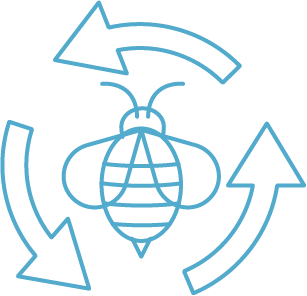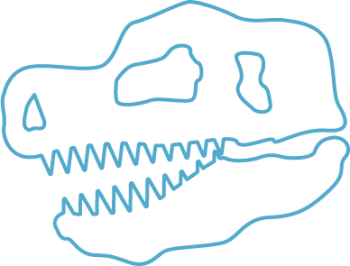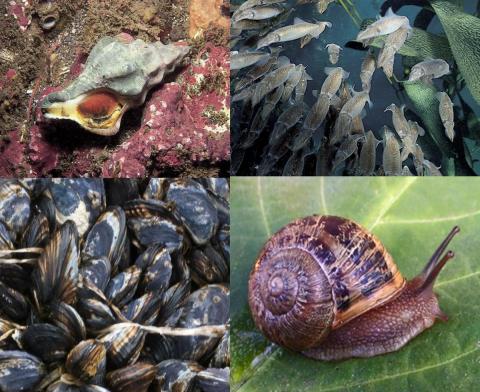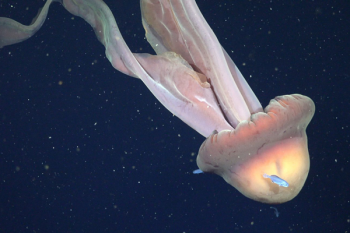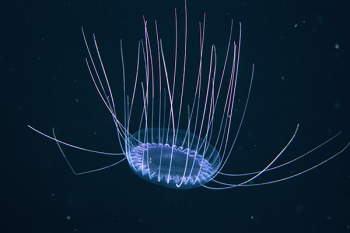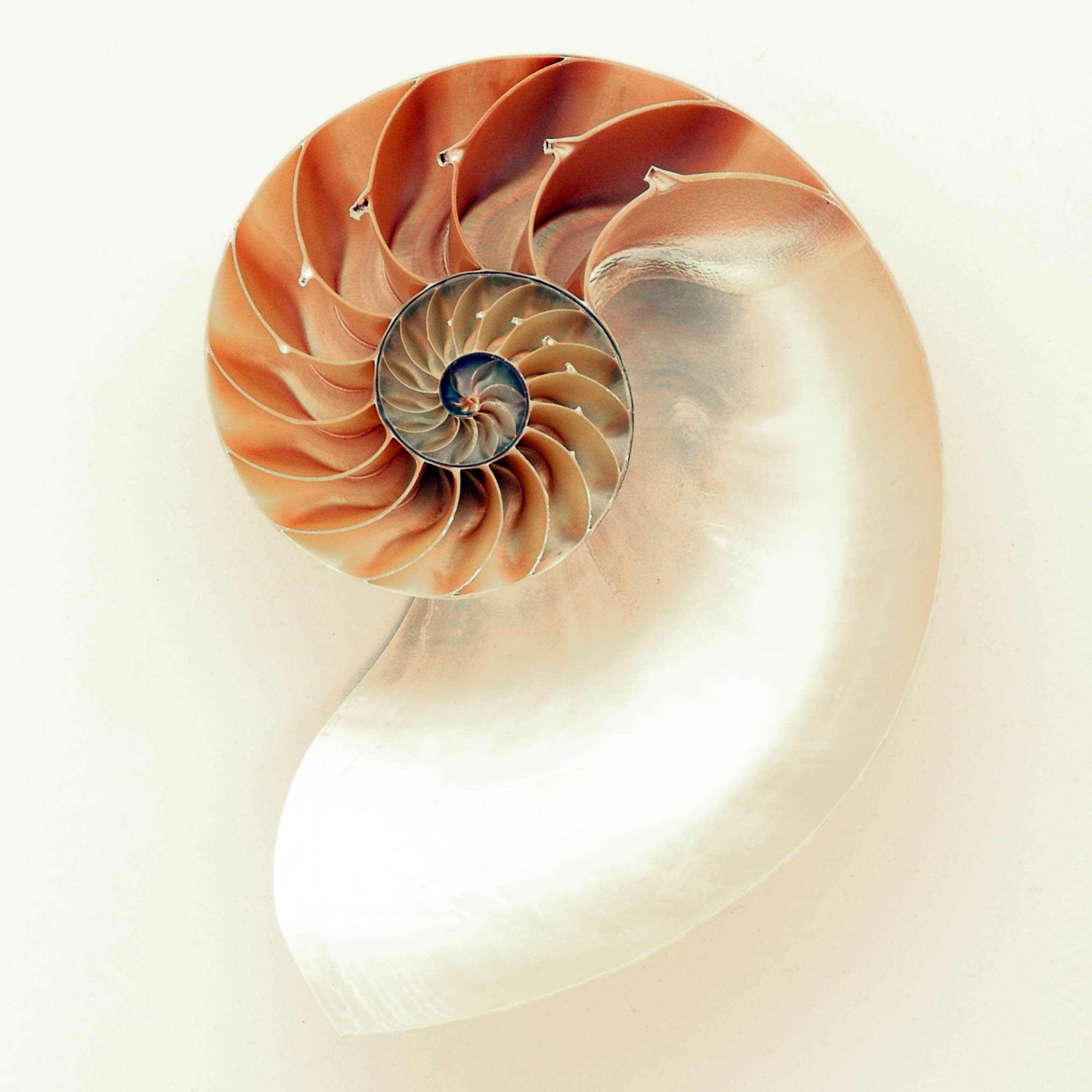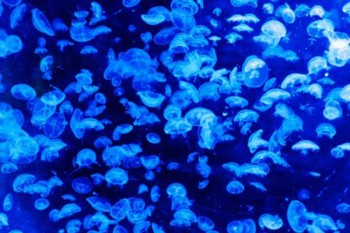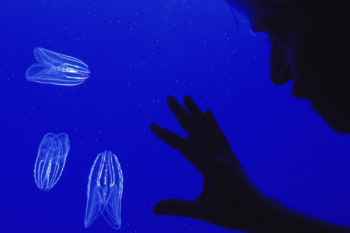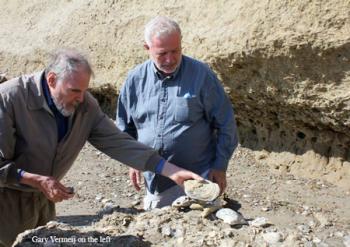We can learn about past climate conditions by studying shells found in the fossil record.
Ocean Acidification. Molluscs with shells made of calcium carbonate are threatened as the ocean is becoming more acidic. Here is an extensive article about how ocean acidification will affect marine animals. Watch this video about How carbon pollution is wreaking havoc on marine life.
Ocean acidification can affect the behavior of snails along the Pacific coast: the changing chemistry of the seawater slows the snails’ reactions.
Pteropods, also called sea butterflies, are tiny marine snails that swim using “wings”— a snail’s modified foot. In many parts of the ocean, pteropods are an important food for zooplankton, fish, and seabirds. Pteropods are among the marine creatures most vulnerable to ocean acidification. Ocean acidification lowers the availability of the mineral aragonite that pteropods use to form their shell, hindering this snail from building its protective armor. Read more about pteropods and ocean acidification in "Amazing Sea Butterflies Are the Ocean’s Canary in the Coal Mine".
When the marine heat wave in 2014 destroyed kelp forests along the northern coast of California, abalone populations also crashed from lack of food. Mussel beds can protect other species when it’s there’s a heat wave.
Contrary to logic sometimes more carbon dioxide in the ocean can make snails’ shells stronger. The increase in carbon dioxide makes the algae more nutritious, so those snails that eat algae are healthier.


